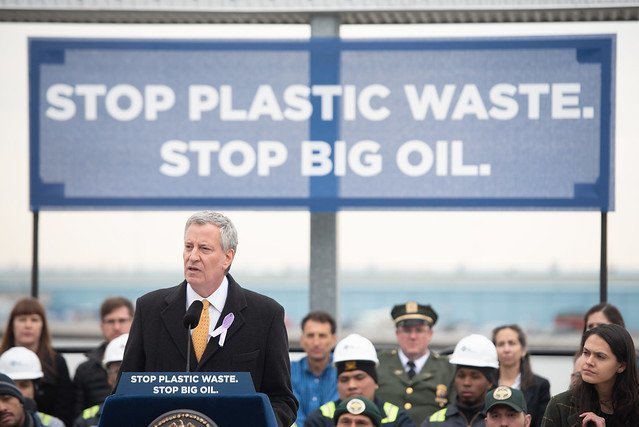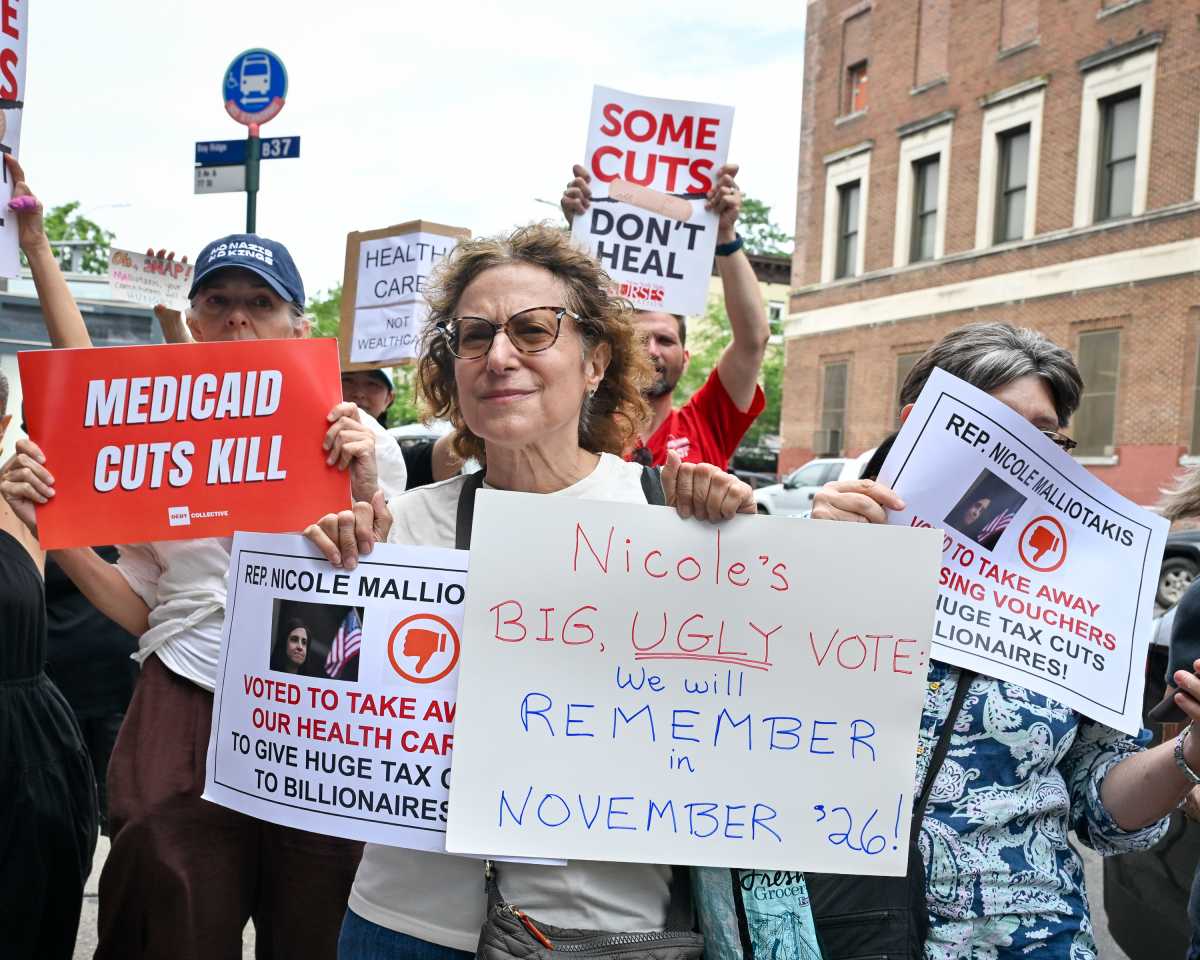The era of the ‘spork’ is coming to a close as Mayor Bill de Blasio looks to end the use of the hybrid utensil across the five boroughs.
City Council Member Rafael Espinal (D-Bushwick, East New York) joined de Blasio earlier today in announcing an executive order that will ban city agencies from purchasing single-use plastics, particularly food ware items.
As part of the order, all relevant agencies are directed to begin reducing their use of single-use plastic foodware immediately, and must also prepare a reduction plan within 180 days. Full implementation of these reduction plans will be achieved by the end of 2020, according to Espinal’s Legislative Director Caitlin Kelmar.

“I’m talking about a whole variety of things that somehow we got used to but we really don’t need anymore, plastic straws, plates, plastic bowls, plastic forks and knives, spoons. The child of knives, and spoons, sporks – oh no, I’m sorry, the child of forks and spoons, sporks – I got it wrong, the child of forks and spoons, and plastic cups. All those things we have alternatives for. City agencies will shift to compostable or reusable materials by end of 2019. So by the end of this year that shift will happen,” said de Blasio.
The announcement comes just two months after Espinal’s introduction of a bill that would ban single-use plastics for which there is a reasonable sustainable alternative across the city and an introduction last year of a bill banning plastic straws.
The announcement comes just two months after Espinal’s introduction of a bill that would ban single-use plastics for which there is a reasonable sustainable alternative across the city and an introduction last year of a bill banning plastic straws.
“We live in an age where almost every part of our daily lives seems to be chipping away at the health of our planet. Every day we pump more toxins into our air, plough more pipelines through or land, and dump more plastic into our oceans,” said Espinal.
The Mayor went on to note that the move is expected within the private sector in the coming months.
“We’re also going to be working with the City Council to take the next step to pass legislation to expand this effort to the private sector, and we intend to pass that legislation by the end of this year. We not only need to stop using plastic food ware as a city government, we need to get plastic food ware out of restaurants, out of stores, we need to get it out of our lives. And we’ll be working with the Council to get that done,” added the Mayor.

Espinal in the last year has introduced several pieces of legislation aimed at decreasing the environmental footprint of New York City.
One of these bills would make all NYC roofs “green”, requiring that new commercial developments cover all available roof space with a green roof system, solar panels, and small wind turbines, or a combination of all three.
“Next week we’re going to be passing legislation in the City Council that mandates green roofs, and slashes our carbon emissions. We have bills that reduce food waste and protect bird migrations because we are tackling climate change from every angle,” added Espinal.
The plastics in the oceans leach harmful chemicals and decimate marine life. It is estimated that 100,000 sea creatures, including sea birds, whales, dolphins, fish, turtles, and others, die each year from plastic pollution.
Plastic pollution also affects food and water sources. According to a 2017 report of tap water samples, the United States had a plastic fiber contamination rate of 94%, the highest rate among all countries from which samples were collected. Microplastics have also been discovered in shellfish and other marine animals consumed by humans. Although the impact plastic consumption has on human health is largely unknown, some studies have linked them to cancer, birth defects, and endocrine disruption.
“Banning single-use plastics is going to slightly alter the lives of almost every New Yorker. But the smallest consumer change from the largest City in the country is going to have a positive ripple effect across the globe,” said Espinal.










